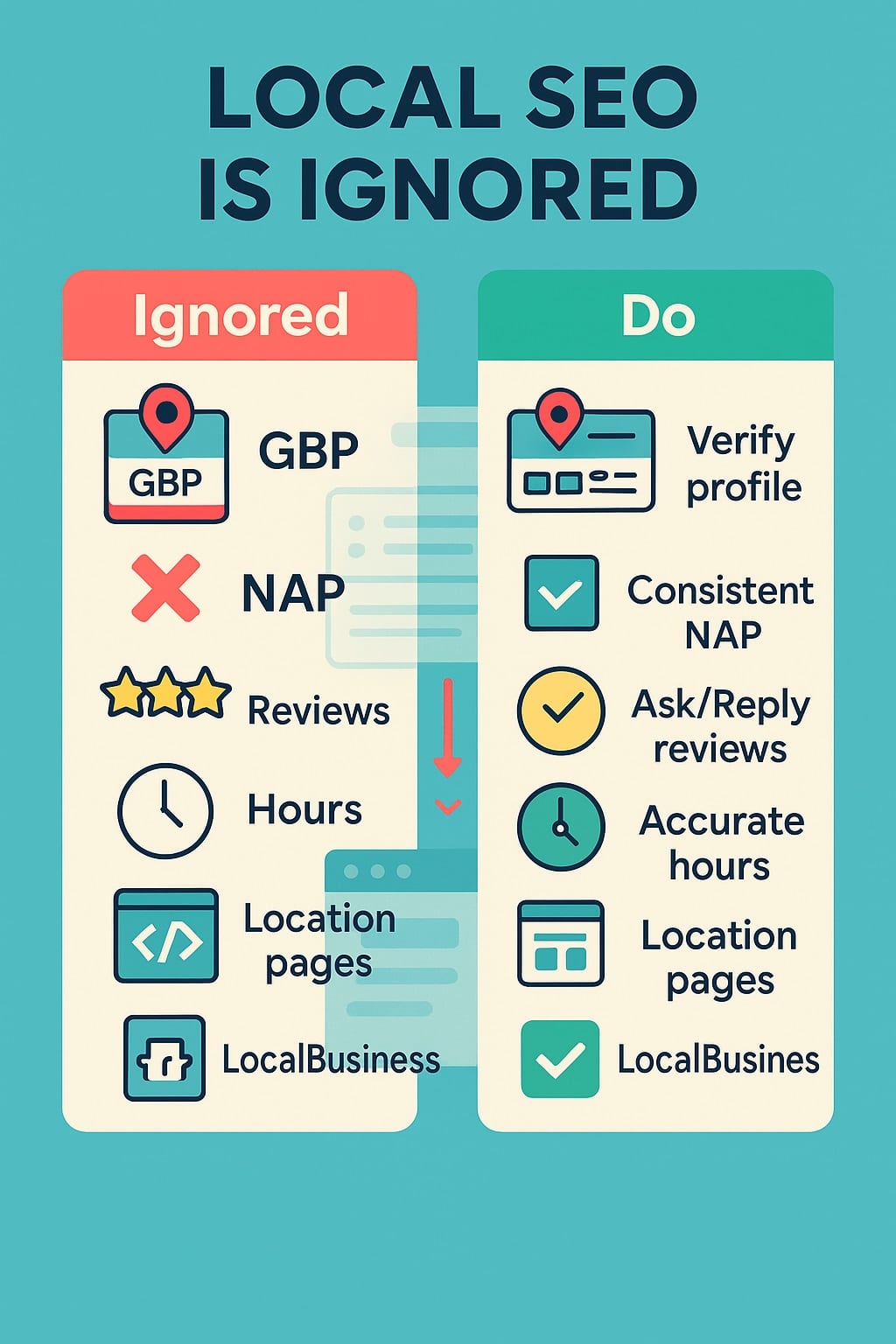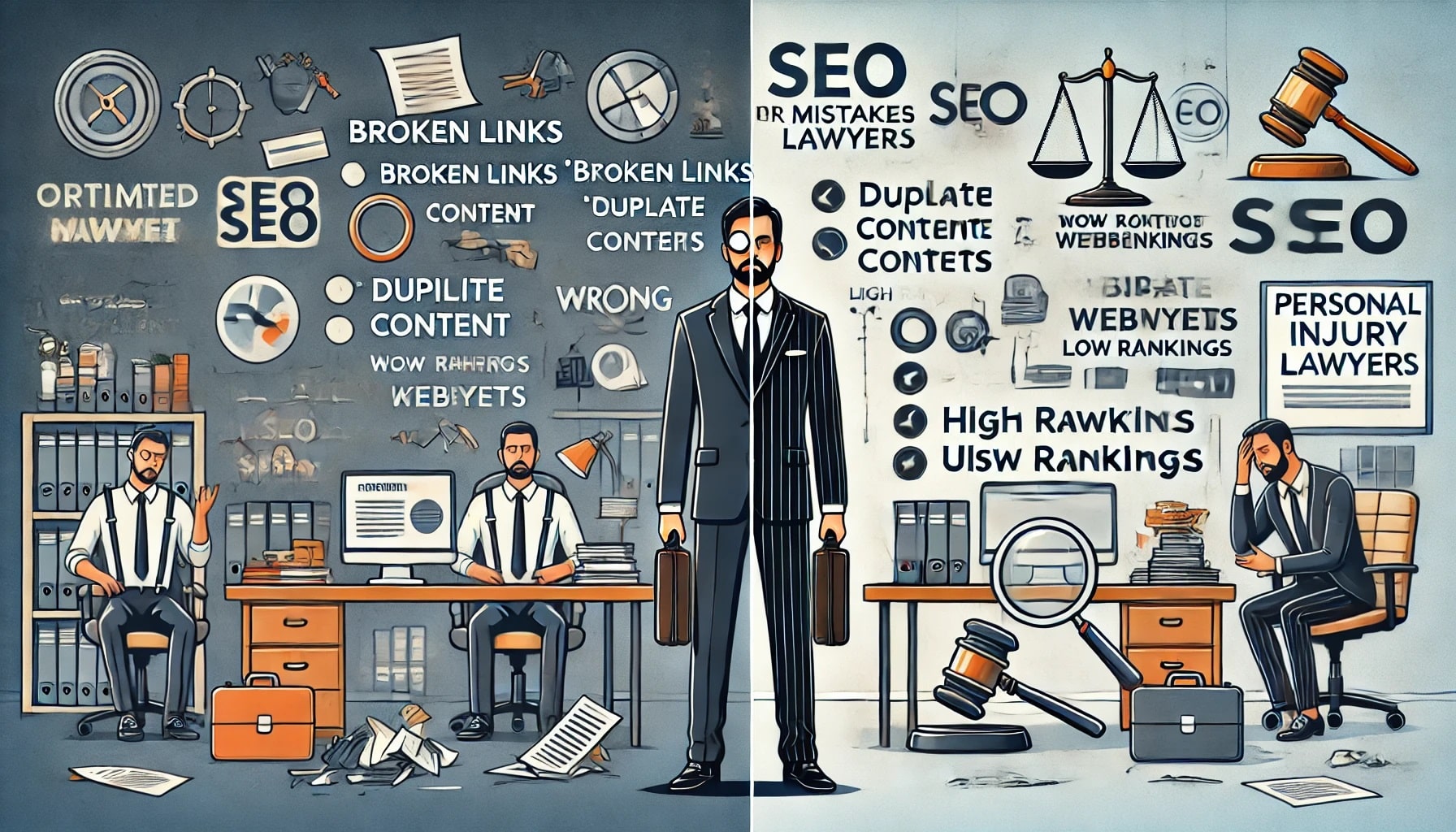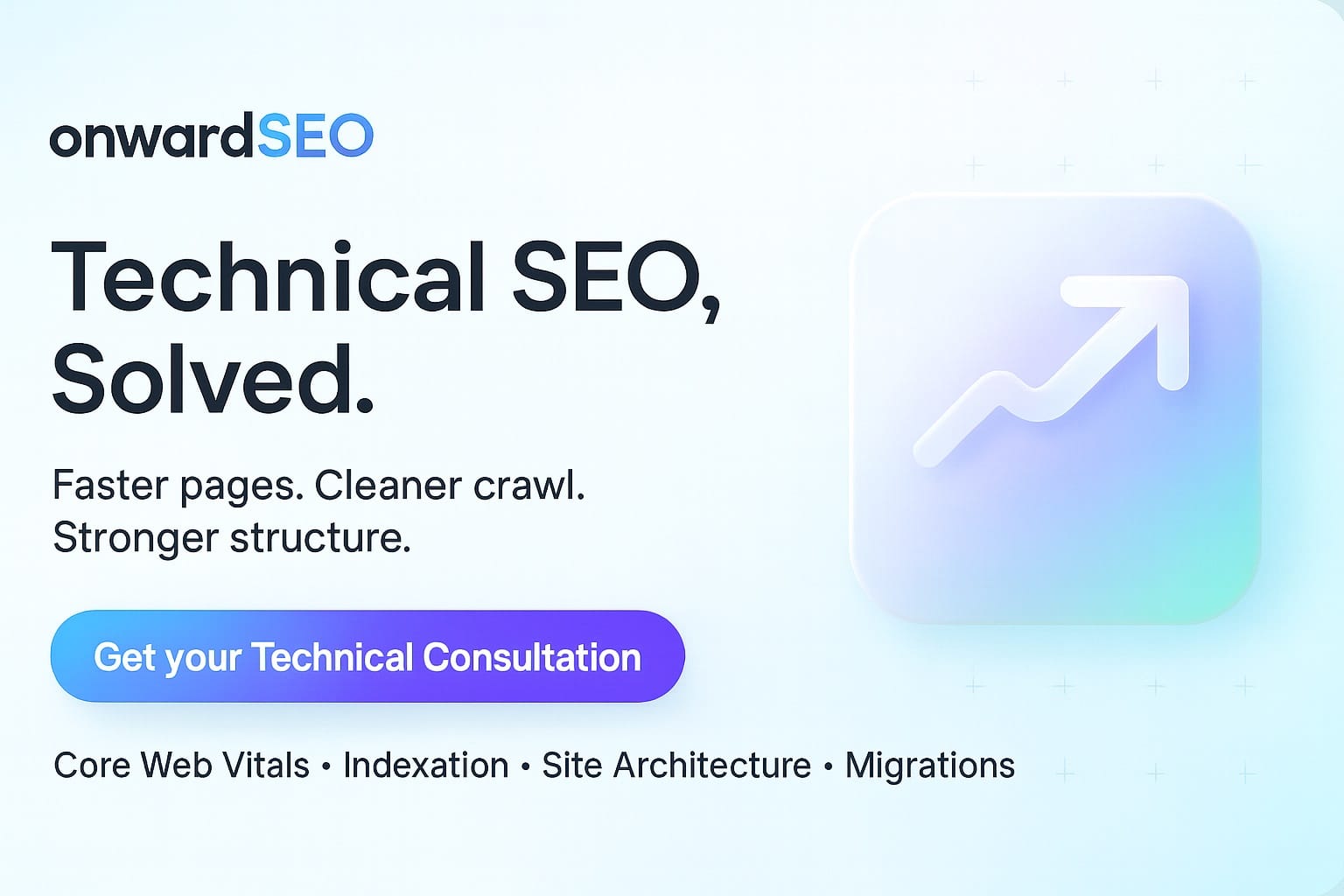Is Your SEO Website Presence Helping Your Personal Injury Practice?
While you have worked hard to build your personal injury practice, is your website presence in search engines helping?
Many personal injury lawyers I know battle the same SEO issues, which cost them a lot of money and lost business.
We all know how costly it is to run Google Ads on keywords like “SEO for personal injury lawyer”, so SEO is a much better ROI approach to digital marketing customer acquisition.
These errors, from neglecting the shift toward mobile browsing to failing to account for local SEO idiosyncrasies, can seriously hinder your progress.
Let’s examine the top ten SEO mistakes that can hold you back—and, more crucially, how to fix them. Believe me, you’ll be on the fast track to improving your search engine rankings by fixing these problems.
1. Local SEO is Ignored

It’s easy to overlook how crucial local SEO is to interacting with possible customers in your nearby neighborhood. Those seeking legal help may make use of location-specific language such as
“personal injury lawyer in [Your City]” or just “best personal injury attorney near me”. Ignoring local optimization results in passing over these ready-made clients.
- First, make sure your Google Business Profile is optimized and accurate.
- Add location-specific keywords to the text of your website.
- Invite happy consumers to post good reviews; this increases your credibility and helps local search results.
Being prominent on Google’s local pack and maps makes you stand out.
2. Ignoring Mobile Optimization?
Having a non-mobile-friendly website is like shutting off possible consumers, as most searches now come from mobile devices. If your website loads slowly or shows incorrectly on tablets and smartphones, visitors will flee faster than you could say “personal injury.”
- Use Google’s Mobile-Friendly Test to assess your website’s mobile device performance.
- Create a responsive design that fits well on several screen sizes.
- Give speedy load speeds and simple navigation top priority to keep mobile users intrigued and more likely to contact you.
3. Has your work grown stale?
Not only is outdated material an eyesore, but it also tells search engines and users that your website is not updated—legal information changes, as do consumer issues. Regular updates of your material will help you seize opportunities to involve your audience and improve your output.
- Review and update the content on your website regularly.
- Update blog entries with the most recent legal changes.
- Draft fresh FAQs responding to client queries.
- Stress recent case successes.
Fresh content keeps visitors interested and shows Google that your website is relevant and active.
4. Are There Any Quality Backlinks?
Backlinks from reputable sites act as votes of trust, boosting your site’s search engine view. Many times, though, lawyers misinterpret their impact on SEO traffic segment. A robust backlink profile might improve your rankings.
- Prioritize getting backlinks from top-notch, relevant websites.
- Participate in local news coverage.
- Offer guest posts to legal blogs.
- Network with professional organizations.
Recall that, in terms of backlinks, quality always trumps quantity.
5. Stuffing keywords?
An old tactic that could do more damage than benefit is keyword stuffing. Overloading your material with keywords causes it to read poorly and could lead to penalties from search engines, reducing your ranks.
- Strive for a natural, reader-friendly application of keywords.
- Include them naturally in your work without forcing it.
- Use tools like Google’s Keyword Planner to find pertinent terms.
6. Is your website loading slowly?
A sluggish website annoys consumers and attracts search engine penalties. In a time when people want pleasure right now, a slow website can seriously lower search ranks and increase bounce rates.
- Optimize the effectiveness of your website by compressing images.
- Use browser caching.
- Consider changing your hosting provider if necessary.
Use tools like Google’s PageSpeed Insights to identify bottlenecks and areas for improvement.
7. Does your website have signs indicating trust?
Trust is vital in the legal context. Potential customers may question your credibility and look elsewhere if your website lacks professional affiliations, case results, or testimonials.
- Create client testimonials.
- Show strong case results.
- Display any honors or certifications on your website.
These trust signals help guests feel confident in your knowledge and trustworthiness, raising their chances of interaction.
8. Technical SEO is left out
Technical issues such as faulty links, poor site architecture, and missing meta tags could compromise your SEO plan. If these fundamental needs fall short, search engines will find it difficult to correctly crawl and index your website.
- Using tools like SEMrush or Screaming Frog, do regular technical SEO audits.
- Repair broken links.
- Enhance the architecture of your website.
- Ensure that every meta tag is perfectly tuned.
An excellent technological basis enhances search engine visibility as well as user experience.
9. Are there apparent calls to action lacking?
Visitors have to know what to do going forward. Clear, strong calls to action (CTAs) help you avoid abandoning your site without any action to contact you.
- Use strong CTAs throughout your website.
- Phrases like “Schedule a Free Consultation” or “Contact Us Today” should be visible and immediately available on every page.
Good CTAs will help you convert more.
10. Are you neglecting to track and change your SEO approach?
SEO is not something you perform once and ignore. The digital marketing scene is continually shifting; what is effective now could not be so tomorrow as Google continuously updates its rankings. Ignoring statistics and neglecting to modify your strategy could cause your rating to stagnate or drop.
- Use Google Analytics and Search Console to routinely evaluate the performance of your website.
- Watch vital statistics, including site traffic, keyword ranks, and conversion rates.
- Learn to change your approach depending on what works and what doesn’t.
Long-term SEO depends on staying adaptive.
Final Thoughts
Although your digital presence constantly improves, avoiding five typical traps will speed you toward that point. Adopting a proactive SEO plan will increase your search rankings and all other facets of your digital outreach.
Please contact us if you require assistance negotiating the complexity of SEO. I’m here to help you make your website helpful in drawing in and converting potential clients.
Let’s work together to get your web profile as strong and successful as your legal career.
About the Author:
With over 14 years of seasoned expertise in Technical SEO consulting, Eugen Platon SEO Expert stands at the forefront of the evolving digital marketing landscape. His approach to Technical SEO (search engine optimization) is both comprehensive and bespoke, ensuring that each technical SEO project he undertakes is finely tuned to its unique requirements and goals. He excels in elevating website visibility, bolstering user engagement, and navigating the ever-changing currents of SEO. Under his guidance, your online presence is transformed into a dynamic digital force, adeptly meeting and surpassing set objectives. Eugen combines time-tested SEO strategies with cutting-edge AI powered SEO techniques, dedicating himself to transforming your digital footprint into a magnet for both search engines and your target audience. Embark on a journey with him to unlock the full SEO potential of your online presence.








